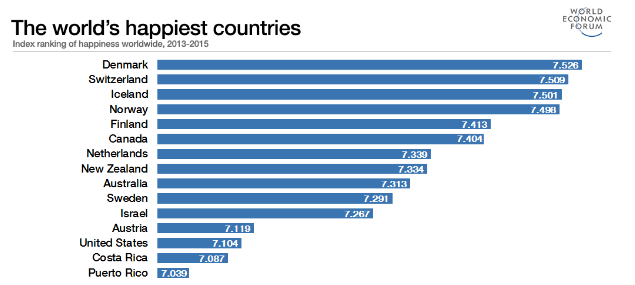We hear about how Denmark, Sweden, etc. are the happiest nations. I don't know if that's true or not but, they are smaller populations. Is it possible that they do well because they are smaller?
For that matter, the smaller and closer to home is our governance, is it not better?
From what I can gather, the left typically likes to consolidate huge swathes of people and govern them from one, centralized government. But, as far as I can tell, government is better when it's smaller and more localized.
What say you?
Is it possible that they do well because they are smaller?
Probably no, but insofar as you've not provided context to inform us of what dimension of satisfaction achievement -- social welfare, national economic welfare, personal physical welfare (health), political welfare, personal financial welfare, cultural welfare, etc. -- your question is ambiguous; thus it's not possible to know in what regard you mean.
You've implied that the measure of "doing well" is the highly subjective thing called happiness. Well to be sure, most of the countries that are happiest are markedly smaller than the U.S.; however, Australia and Canada demonstrate that size is at best an immaterial factor in determining a nation's happiness.

Indeed, from an economic standpoint, a nation's larger size may well contribute positively to the happiness of a citizenry by dint of there being greater absolute quantities of exploitable resources within the borders of a large nation, thereby providing more opportunity for citizens of large nations to obtain a host of things that correlate positively to people's happiness -- entrepreneurial options, jobs, financial reward, access to open space, etc.
Looking at the happiest nations, one sees the U.S. is among them, which given that there are some 190 nations on the planet, means that despite the short line U.S. has on the chart above, the U.S. is among the happiest nations on Earth. It may not to some Americans feel like a happy place. What is there to say about that? The grass across the street often looks greener; however, closer examination may reveal that what's green there may not (1) be the type of grass that can thrive in one's own yard, or (2) be grass at all.
So if size isn't a material determinant, what is? Well, the
World Happiness Report describes the
factors the WEF used to measure happiness. Inasmuch as happiness is a highly subjective quality, their independent variables are as good as any one might use. I know I'm sure not going to refigure their calculus and/or derive my own equation for quantifying it.
